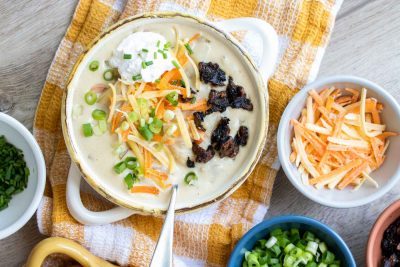The Truth About Diet Myths: What Dietitians Want You To Know
In an era of endless nutrition information—from online influencers to wellness blogs—it can be challenging to distinguish fact from fiction when it comes to healthy eating. Every week seems to bring a new superfood trend, a revolutionary diet approach, or a "life-changing" eating strategy that promises to transform your health overnight.
The problem? Much of this information is misleading, oversimplified, or downright wrong. These nutrition myths go beyond being confusing—they can actually derail genuine health efforts and create unnecessary stress around food choices.
Thankfully, our favorite registered dietitian and PB2 Foods Partner, Amanda Holtzer, joins us once again to help identify and debunk some of the most persistent myths about healthy eating.
Myth #1: More Protein Is Always Better
Social media has turned protein into the ultimate health hero, with some fitness fans promoting massive daily protein targets and "high-protein everything" meal plans. But according to Amanda, this enthusiasm has gone too far.
"Protein is getting all the rave and publicity right now. And don't get me wrong—protein is super important. It's crucial for muscle recovery, proper growth and development, hormone balance, and satiety," Amanda explains. "But the amount of protein being praised as necessary or essential has gotten out of hand."
The reality is much more moderate than what you'll see in your Instagram feed. "The average person needs 0.8-1 gram of protein per kilogram of body weight. So, for a 150 lb woman, this looks like about 54-68 grams per day. For a 200 lb man, this looks like 72-90 grams per day," Amanda notes.
That's significantly less than some popular social media recommendations of 1 gram of protein per pound of body weight, which Amanda describes as "far too much for most people." Unless you're extremely active with specific muscle-building goals, these elevated targets aren't necessary. They can actually create stress around meal planning and lead to the neglect of other important nutrients.
With 20 grams of plant-based protein per 2-scoop serving, PB2 Performance with Vanilla or PB2 Performance with Cocoa allows you to boost the protein content of meals and snacks stress-free and without having to cook—unlike other common meat or bean protein sources. This convenience factor helps you meet nutritional goals without obsessing over hitting unrealistic daily targets or spending extra time in the kitchen.
Myth #2: Low-Carb Is the Only Way to Lose Weight
"How many times have we heard, 'to lose weight, you have to cut carbs,'" Amanda asks. This persistent myth has created unnecessary fear around an entire macronutrient group, leading people to avoid perfectly healthy foods in pursuit of weight loss.
"A low-carb diet might work for some people, and that is all well and good. But it certainly doesn't work for everyone, and it shouldn't be coined the best or only way to lose weight," Amanda emphasizes. "Weight loss happens when we are in a caloric deficit. And that can happen whether we are on a low-carb diet or not."
More concerning is what often happens when people try to drastically reduce carbohydrates. "In many people, a low-carb diet can lead to low energy and increased cravings, nighttime snacking, or perhaps even bingeing," she warns.
Rather than following one-size-fits-all dietary rules, Amanda recommends "working with a registered dietitian to learn what the most effective and sustainable weight loss method is for your unique body and your unique life."
With only 5 grams of carbs per serving compared to 6 grams of plant-based protein, PB2 Original can fit into a wide variety of individualized diet approaches—providing flexibility, sustained energy, and satisfaction.
Myth #3: Natural Sugars Are Always Healthier
The health halo around "natural" sweeteners has created another persistent myth that Amanda regularly addresses.
"Repeat after me—sugar is sugar," Amanda explains. "In fact, 1 teaspoon of honey contains about 6 grams of sugar, while 1 teaspoon of cane sugar contains about 4 grams of sugar."
While honey does contain trace amounts of micronutrients like calcium, copper, and magnesium that white sugar lacks, and has a slightly lower glycemic index, Amanda points out that "the metabolic differences are very slight."
"Overall, natural products like honey, maple syrup and brown sugar are less processed than cane sugar, but are quite similar in nutrient breakdown at the end of the day," she explains.
The takeaway isn't that you should avoid natural sweeteners, but rather that you shouldn't stress about perfectly optimizing your sugar sources. "Is it necessary to replace all white sugar with honey or maple syrup? No. Would it be beneficial for many of us to moderate our added sugar intake? Yes."
This balanced perspective is reflected in many PB2 products like PB2 Almond, PB2 Cashew and PB2 Crunchy—which contain just 1 gram of added sugar or less per serving—enough to enhance flavor without contributing significantly to daily sugar intake.
Myth #4: Detox Foods Can "Cleanse" Your Body
From celery juice cleanses to apple cider vinegar shots, the internet is full of foods supposedly capable of detoxifying your body. Amanda's response to these claims is straightforward.
"There is no single food or food product that will 'cleanse' the body. That is the job of the liver and kidneys—they are our body's filtration system. Suffering through a shot of apple cider vinegar every morning is not going to help them."
Instead of searching for magical detox foods, Amanda recommends focusing on what actually supports your body's natural detoxification systems: "Eating a varied diet rich in fruits, vegetables and fiber, limiting alcohol intake and maintaining a healthy weight."
Unlike fleeting wellness fads that promise quick fixes, plant-based protein products like PB2 Pure represent a sustainable approach to nutrition that’s focused on genuine nutritional value rather than hype. While detox trends come and go, the fundamental need for quality protein sources remains constant, making PB2 a reliable choice that supports your body's existing systems rather than trying to outsmart them with trendy superfoods or extreme “detox” protocols.
Myth #5: Zero-Sugar Is the Goal
Perhaps no nutrient has been more villainized than sugar, leading many people to pursue complete elimination as their health goal. Amanda acknowledges the legitimate concerns about excessive sugar intake while warning against taking elimination too far.
"Research shows that the American diet is extremely high in sugar. According to the American Heart Association, the average American consumes about 71 grams of added sugar per day. For reference, the daily recommended amount of sugar is 25 grams for women and 36 grams for men," Amanda notes.
However, she argues that zero-sugar goals often backfire: "As a dietitian, I do not believe that it is realistic or wise to be aiming to consume a zero-sugar diet. Here's why—that kind of diet can be extremely restrictive."
The psychological impact of extreme restriction concerns Amanda most: "Aiming to consume zero sugar can result in omitting certain foods altogether, refraining from trying new foods, and overall feeling a sense of deprivation and/or restriction in one's diet. And those feelings can often lead to overeating or bingeing later on."
Instead, Amanda advocates for moderation: "I recommend everyone make an effort to moderate their sugar intake, rather than eliminate it altogether." She suggests practical swaps, like reducing coffee sweetener from three sugars to one, limiting desserts to 2-3 times per week instead of daily, or choosing Greek yogurt with fruit instead of sugary cereal.
Rather than having to choose between complete deprivation and high-sugar treats, options like PB2 Pantry Chocolate Chip Brownie or Cookie Mixes offer a middle ground—allowing you to enjoy homemade baked goods while significantly reducing sugar content compared to traditional recipes. It's a perfect example of Amanda's moderation philosophy in action: satisfying cravings without the extremes.
Myth #6 You Don’t Have to Read Beyond the Labels
Amanda also warns about falling for food marketing tactics that exploit our desire for healthy choices.
"It's important to remember that the goal of our food system is to sell us products. And food companies have entire marketing departments dedicated to doing just that," she explains.
When you see products labeled with appealing phrases like "all natural," "heart healthy," or "made with superfoods," Amanda encourages skepticism: "I encourage you to first take them with a grain of salt, then read the nutrient label and ingredient label to see for yourself if they are actually a clean label food."
This critical thinking approach is exactly why PB2's straightforward ingredient list and transparent nutritional profile stand out. With PB2 Original containing just roasted peanuts, sugar, and salt, and PB2 Pure only roasted peanuts—there's no need to decode marketing language—the product speaks for itself!
In Conclusion: Building a Balanced Approach
The common thread through all these myths is the tendency toward extremes—whether it's over-maximizing protein, eliminating carbs, or pursuing zero sugar. Amanda's professional guidance consistently points toward balance, moderation, and individualization rather than one-size-fits-all rules.
This balanced approach is reflected in how she recommends using PB2 Original, like stirring it into plain Greek yogurt, freezing for 1 hour, and topping with mini chocolate chips for a delicious and healthy sweet treat. Add it to oatmeal for a nutty flavor and extra protein—or blend it into your favorite smoothie. Check out our roundup of recipes below for a few more favorite ways to enjoy PB2!
These suggestions aren't about following rigid rules, hitting specific targets, or totally changing your daily go-to meals—they're about enhancing foods you already enjoy while supporting nutritional goals. At PB2 Foods, we strive to create products that help people develop an informed, flexible approach to eating that supports physical health, individual needs, and lifestyle. Because the goal shouldn't be nutritional perfection, but nutritional peace of mind!
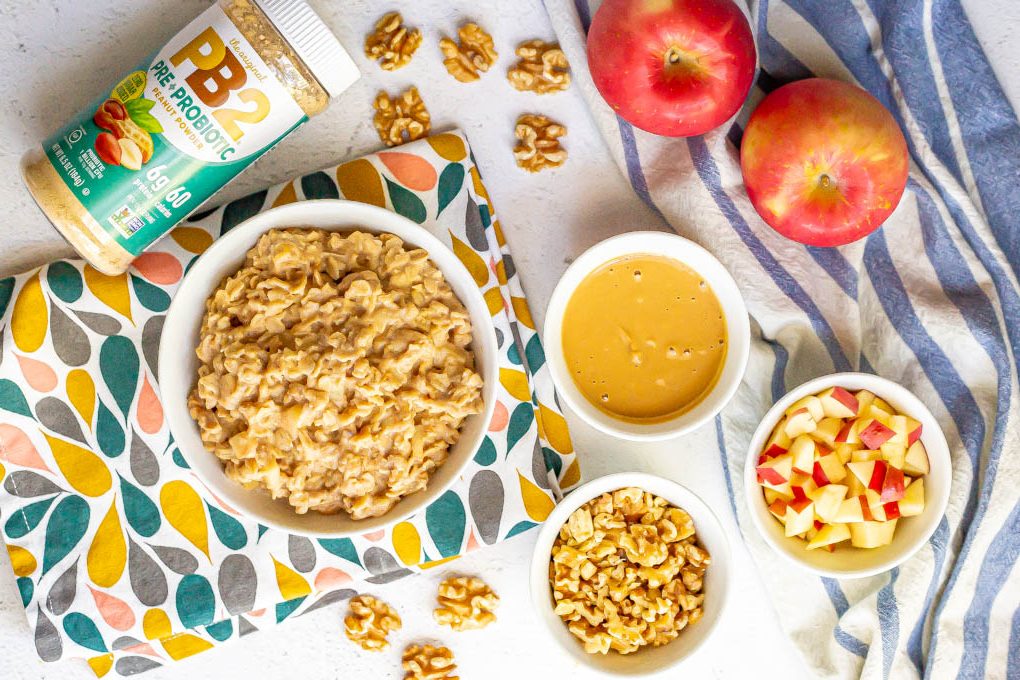 |
Peanut Butter Oatmeal with Cinnamon and Apples Give that basic breakfast oatmeal a protein-packed update by adding in PB2 Original, along with some crisp apples, crunchy chopped nuts, and a sprinkle of cinnamon! |
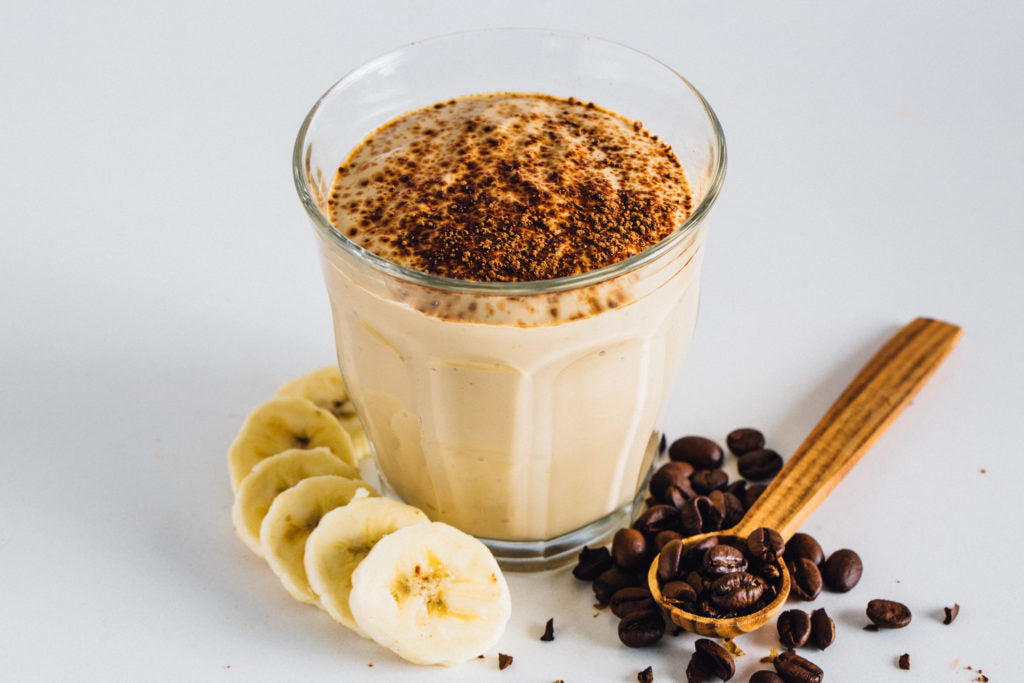 |
Fuel your day the fun way! Our Peanut Butter Energy Smoothie blends coffee, bananas, and PB2 into one creamy, protein-packed pick-me-up. It’s quick, tasty, and only takes a spin in the blender to enjoy. |
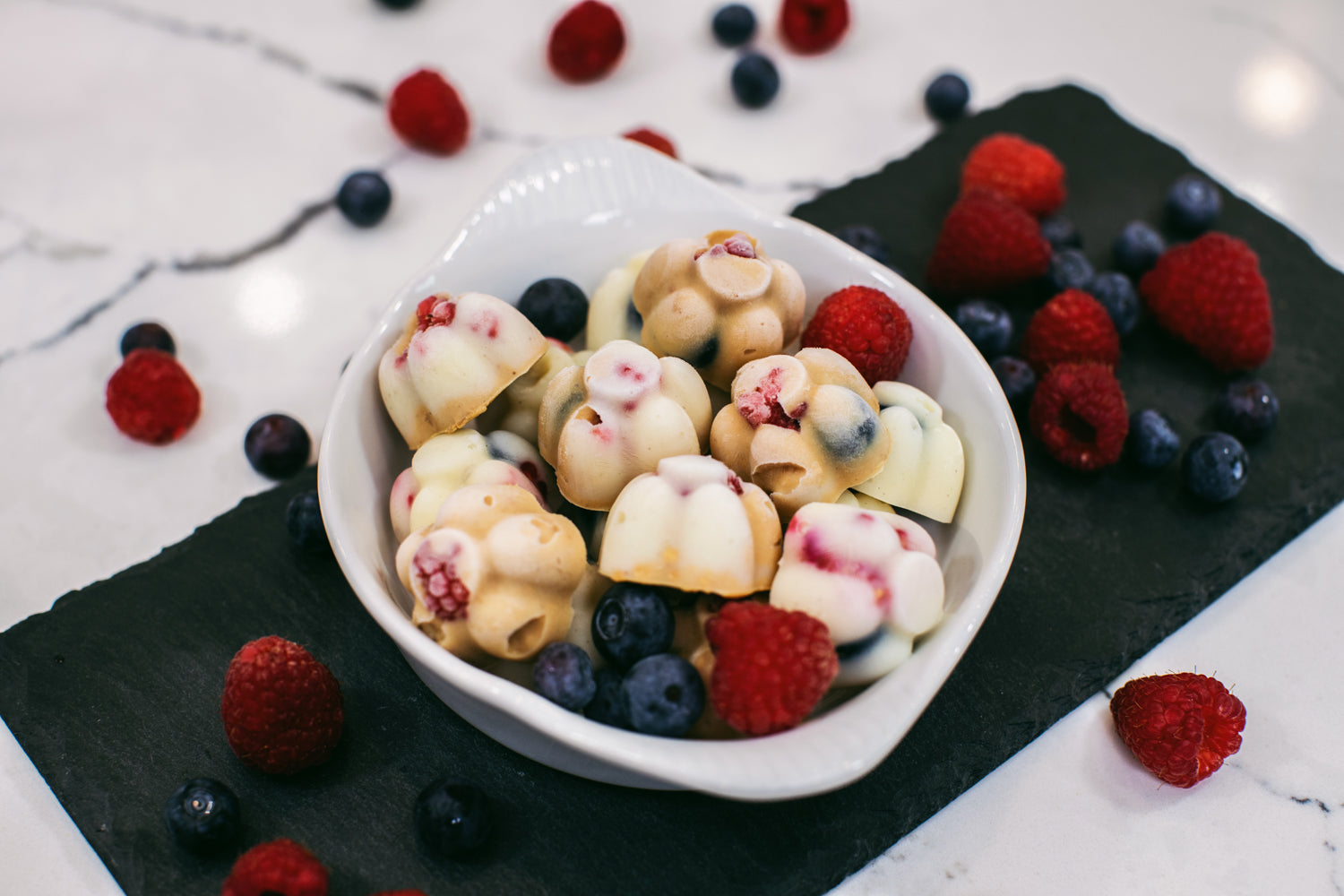 |
Whip up a quick nosh in no time—just 3 simple ingredients and a few seconds of prep. The toughest step? Waiting for them to freeze before digging in! Perfect for both kids and grown-ups. |
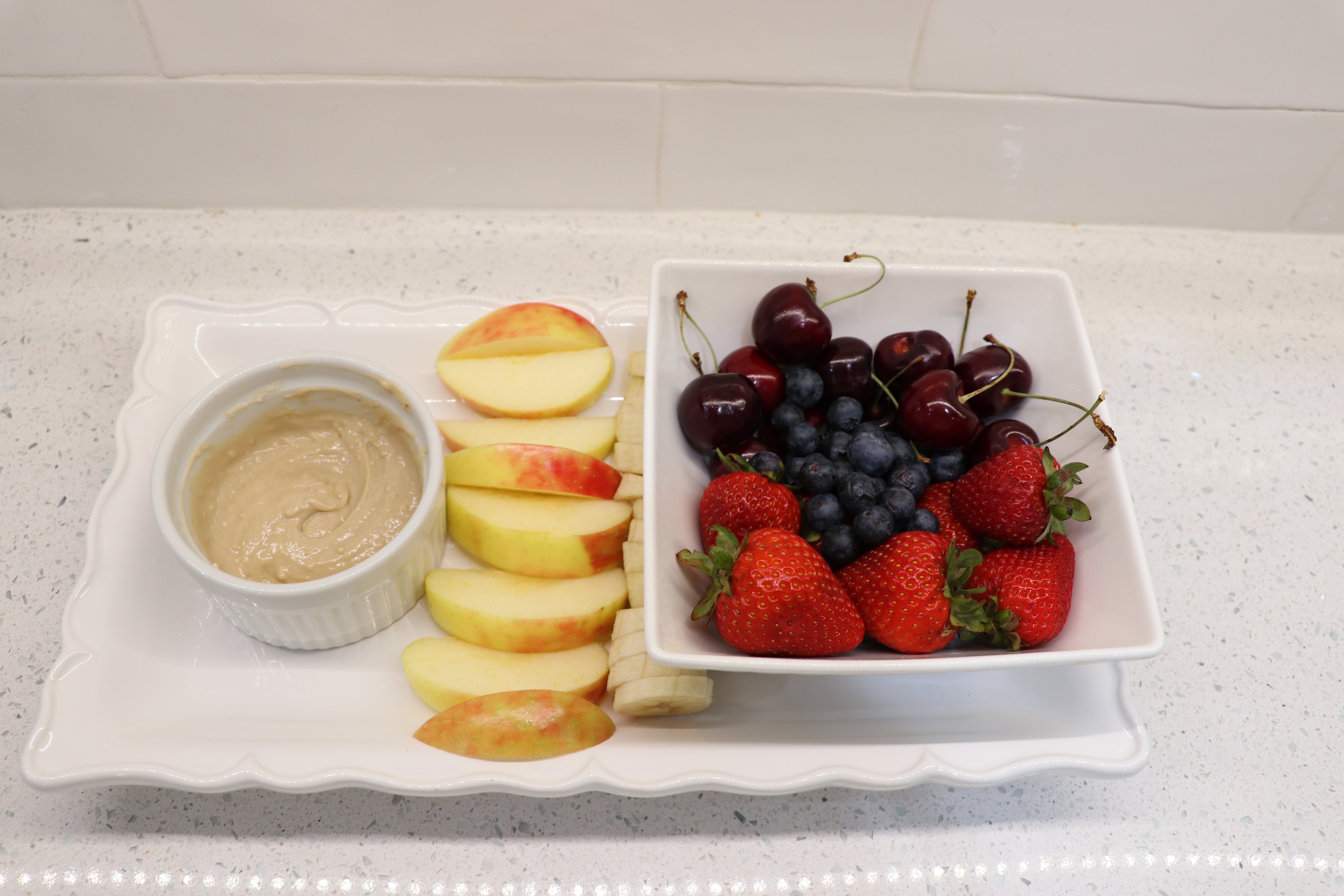 |
Snack time made simple: PB2 Cashew Powder is cashew butter re-imagined—just 100% all-natural cashews, nothing else. No sugar, no salt, no extras. Pair it with a fresh fruit tray for a clean, creamy dip everyone will love. |
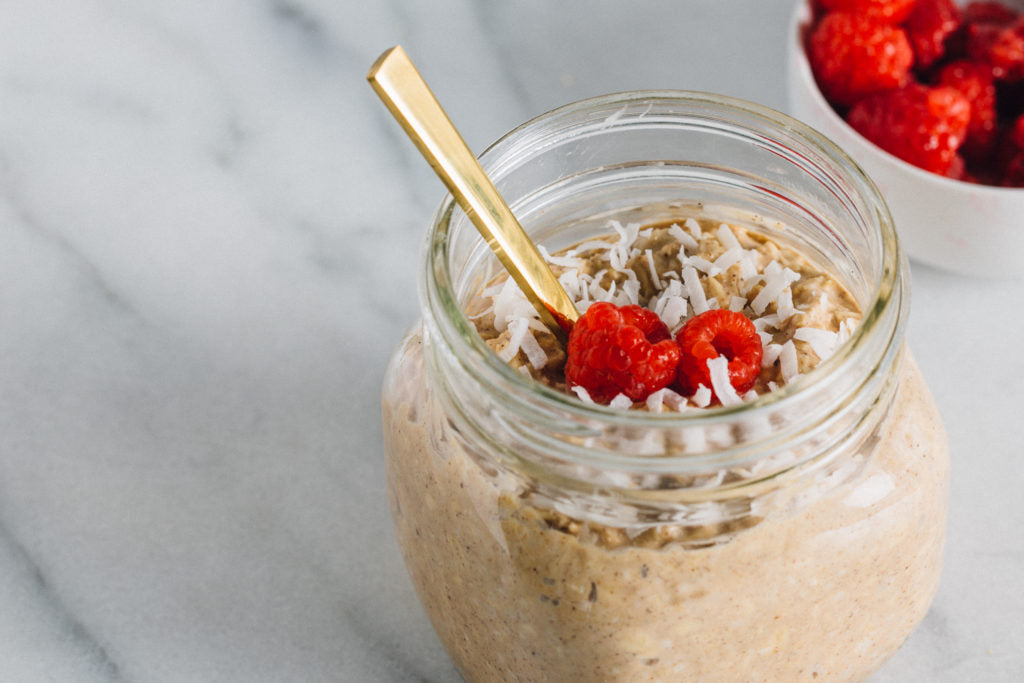 |
Customize this high-protein treat with your favorite toppings—think chocolate chips, fresh berries, or even coconut flakes! Made in an air-tight jar, this is a perfect on-the-go option, a satisfying lunch, or for anytime you just need a tasty boost. |




